I.
Chaos
Long before the rise of Judaism and Christianity, most cosmological beliefs from the Ancient Near East held that before the universe was created, the only thing in existence was pure chaos—symbolized by a dangerous cosmic ocean. Before the Creation Gods could form the heavens and earth, they first had to battle a heinous sea monster and take control of the turbulent waters.
Fast forward to today, pure chaos can be found whirling through the cosmic Gulf of Mexico. The heinous sea monster is called Hurricane Milton. And there’s no Creation God in sight.
Florida Man is fucked.
Source
Typically these kinds of far-away disasters don’t phase me—after all, I live in Nevada. But, the Florida Man who is in the direct path of Milton’s fuckery is my dad. And my mom’s dad. And my fiancé’s dad. And my best friend’s dad. And all the other dads and moms and boys and girls and women and children and dogs and cats and birds and tigers that happen to live in west-central Florida. According to Orlando meteorologist Noah Bergren, this hurricane “is nearing the mathematical limit of what Earth’s atmosphere over this ocean water can produce.” As per President Biden, “Milton could be one of the worst storms in 100 years in Florida.” While South Florida hurricane specialist John Morales starts tearing up on NBC, murmuring, “I apologize. This is just horrific.”
II.
Hell (ene)
My parents live in St. Petersburg, FL in the home I grew up in. It’s a modest one-story home on the water that they purchased for $150k back when you could buy a home—let alone a home on the water—for that price. They got themselves a boat at a yard sale for 4 grand, and my dad built the dock it is on. The point I’m getting at here is that while my parents live on the water in Florida, they are not particularly wealthy people. They made civil servant wages and never hit six figures. Not even close. They were thrifty, crafty, and lucky.
That is, until shit hit the fan.
Just over a week ago, the eye of Hurricane Helene ripped through Florida’s Big Bend, and folks along the central Gulf coast experienced the worst flooding they’ve seen in over 100 years. Storm surge reached 7 feet in Tampa—which meant severe flooding in homes and businesses close to the Gulf. And it wasn’t just tap water that inundated buildings—it was murky, salty, chaotic sea water. It damaged furniture, appliances, walls, mattresses, lamps, equipment, tools, electrical outlets, and just about everything else that resides within three feet of the ground inside a home or garage.
(And homeowner’s insurance doesn’t cover flood damage.)
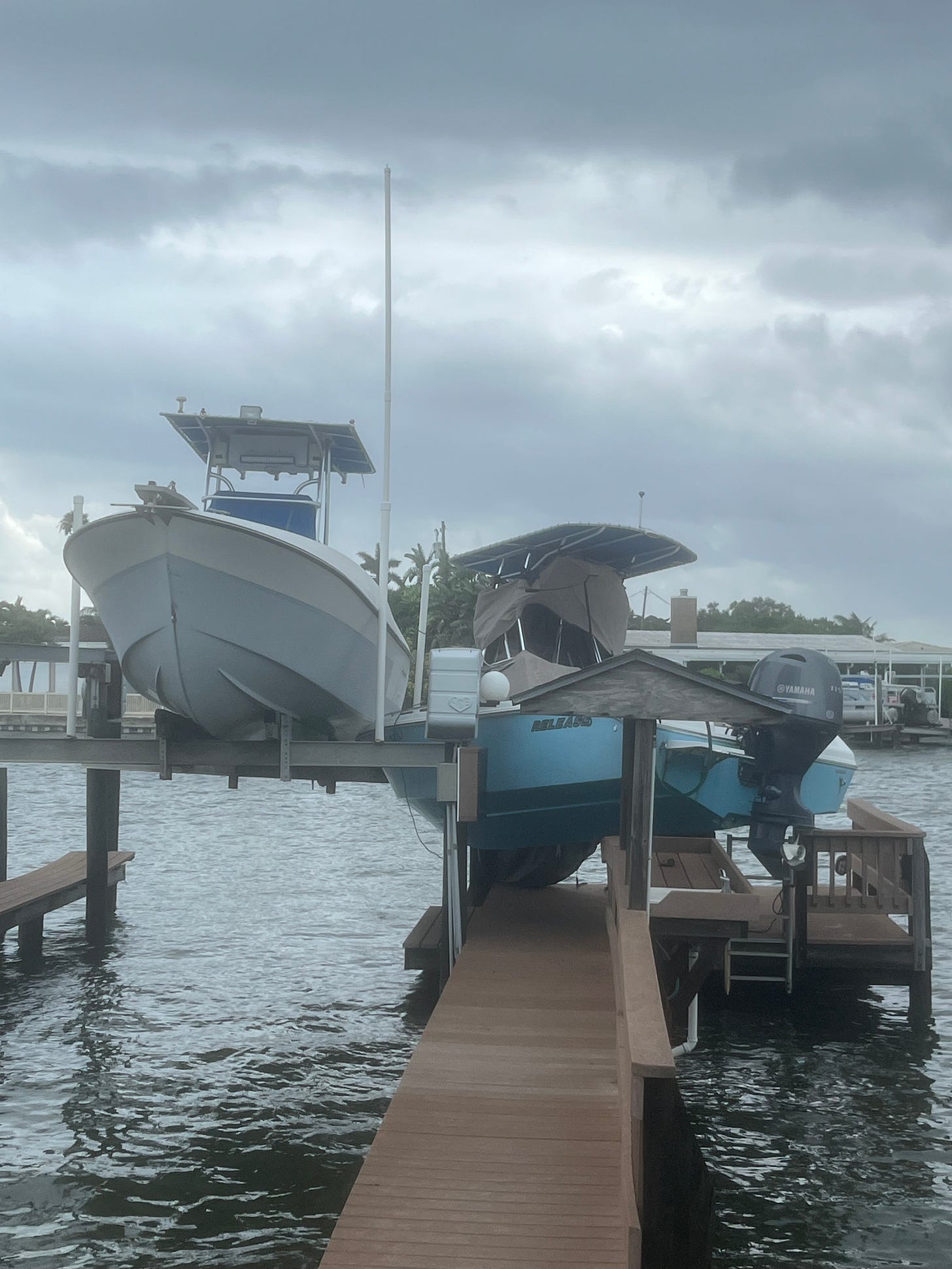
While Helene first made landfall in Florida, it bulldozed its way up through Georgia and into the Appalachian mountain range. People up and down the Southeastern US got a taste of their own flavor of Hell (ene)—especially those impacted by apocalyptic floods in western North Carolina, eastern Tennessee, and southwestern Virginia. The flood damage my parents and their neighbors experienced during the latest storm could be viewed as a minor inconvenience compared to the devastation suffered in communities like Chimney Rock.
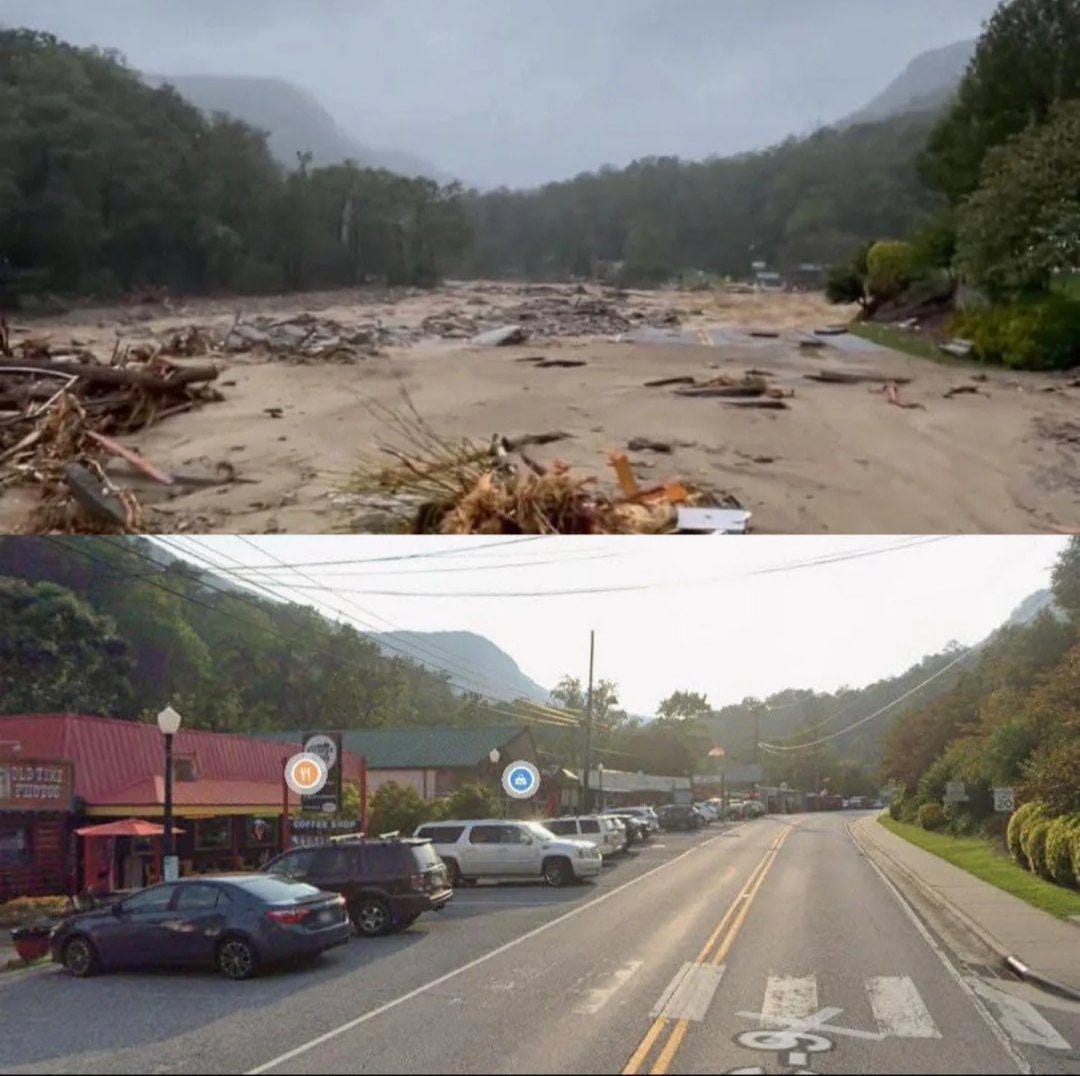
III.
Milton
People close to me ask how my parents are doing while evacuated and waiting for Hurricane Milton to pass. I don’t know how to reply other than, “Oh, you know, just anticipating more catastrophic damage to their home and livelihoods; besides that, they seem to be doing okay.”
But my parents are just two people. With over 3.3 million people in the Tampa Bay area, Tampa is the 3rd largest city in Florida, while Pinellas County, which includes St. Petersburg, is the most densely populated county in the state. Both of these regions are projected to see 8-12 feet of storm surge from Hurricane Milton, while all coastal communities along the 200-mile or so stretch between Tarpon Springs and the Everglades are projected to see at least 5 feet of flooding. That means chaotic sea water in many, many, many, many, many homes and businesses. The resulting damages could add up to hundreds of billions of dollars.
But when it comes to tropical cyclones, storm surge is just one factor. As of this writing, Hurricane Milton is a Category 4 hurricane with winds up to 155mph—most cars don’t even go that fast. It’s also expected to bring 20+ inches of rainfall—which means flooding inland. And then there’s tornadoes.
Almost all of Florida is currently under Hurricane and Tropical Storm watch. No Florida Man is completely safe.
Put simply, this storm will be an utter tragedy.
IV.
Nature of Life
The person who can freely acknowledge that life is full of difficulties can be free, because they are acknowledging the nature of life—that it can’t be much else.
Shunryu Suzuki, Zen Mind, Beginner’s Mind
I permanently evacuated Florida four years ago, but that doesn’t mean I’m completely safe from disaster. No one is.
Wildfires in Hawaii. Wildfires in Wyoming. More wildfires in California, Oregon, and Washington. Winter storms in Texas and Mexico. Derechos in the Midwest. Heat waves in the Pacific Northwest and BC. Hailstorms in Colorado. Tornados in Alabama, Mississippi, and Tennessee. More tornadoes in Missouri, Arkansas, Kansas, Minnesota, and Oklahoma. Hurricane Maria in Puerto Rico. Hurricane Katrina and Rita in Louisiana. Hurricane Harvey in Texas. And Hurricane Sandy along the entire eastern seaboard—from Florida all the way up to Maine.
And those are just a few of the natural disasters we’ve encountered this century in our little part of the world that we call the U. S. of A.
Nature is a beauty, and nature is a beast. Natural disasters will continue to happen, and they will continue to be outside of our control. All we can do is prepare for the worst and pray for the best. When our storm comes—and it will—we’ll have to weather it and then pick up the pieces once it’s all said and done.
V.
Support
No one is useless in this world who lightens the burden of it for any one else.
Charles Dickens, Our Mutual Friend
My writing about the storm does no tangible good for those who will be impacted by it. Unless we’re discussing preparations, simply talking about disaster does nothing for those in its path. But support does.
People will need food and water and electricity. They’ll need a roof over their heads. They’ll need money. They’ll need boots on the ground. They’ll need to rebuild their entire livelihoods. But they’ll also need comfort and hope and emotional support.
If you know someone affected by disaster, reach out to them. Ask them how they are doing. Shut your yap for a few minutes and listen. Give them the gift of your full attention. Empathize with them. Forgive them. Support them. Help them in the ways that only you can.
While none of us are Creation Gods, we might just be the answer to someone’s prayers when we extend our support in times of crisis. And what goes around comes back around. More crises will come, so be prepared and be helpful.
Today, it’s Florida. Tomorrow, it might just be your hometown.

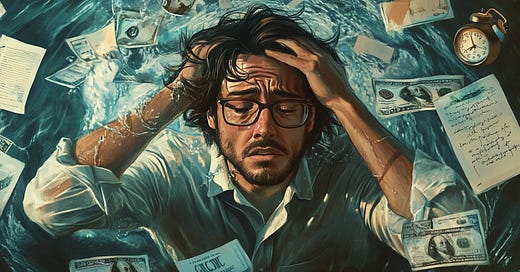


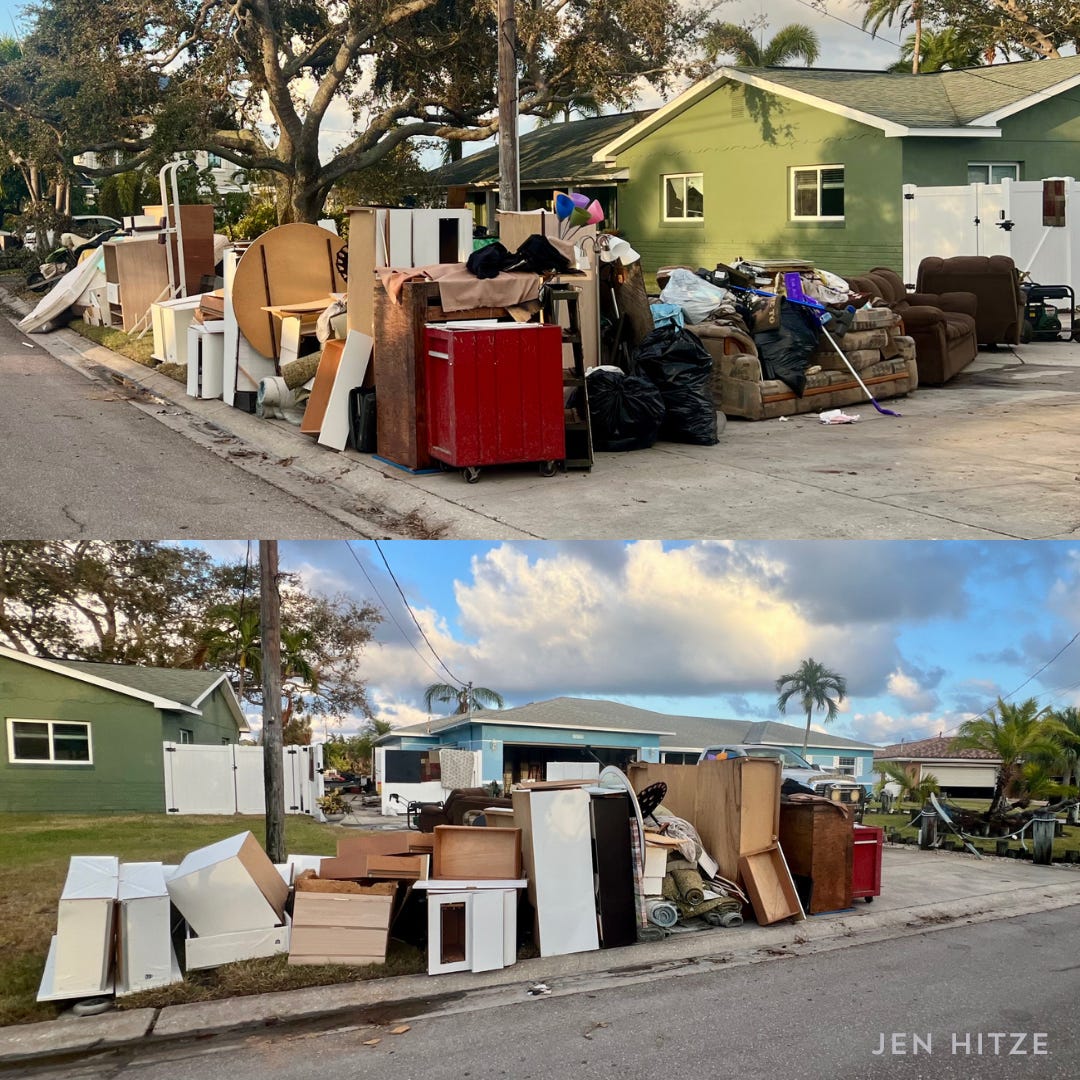

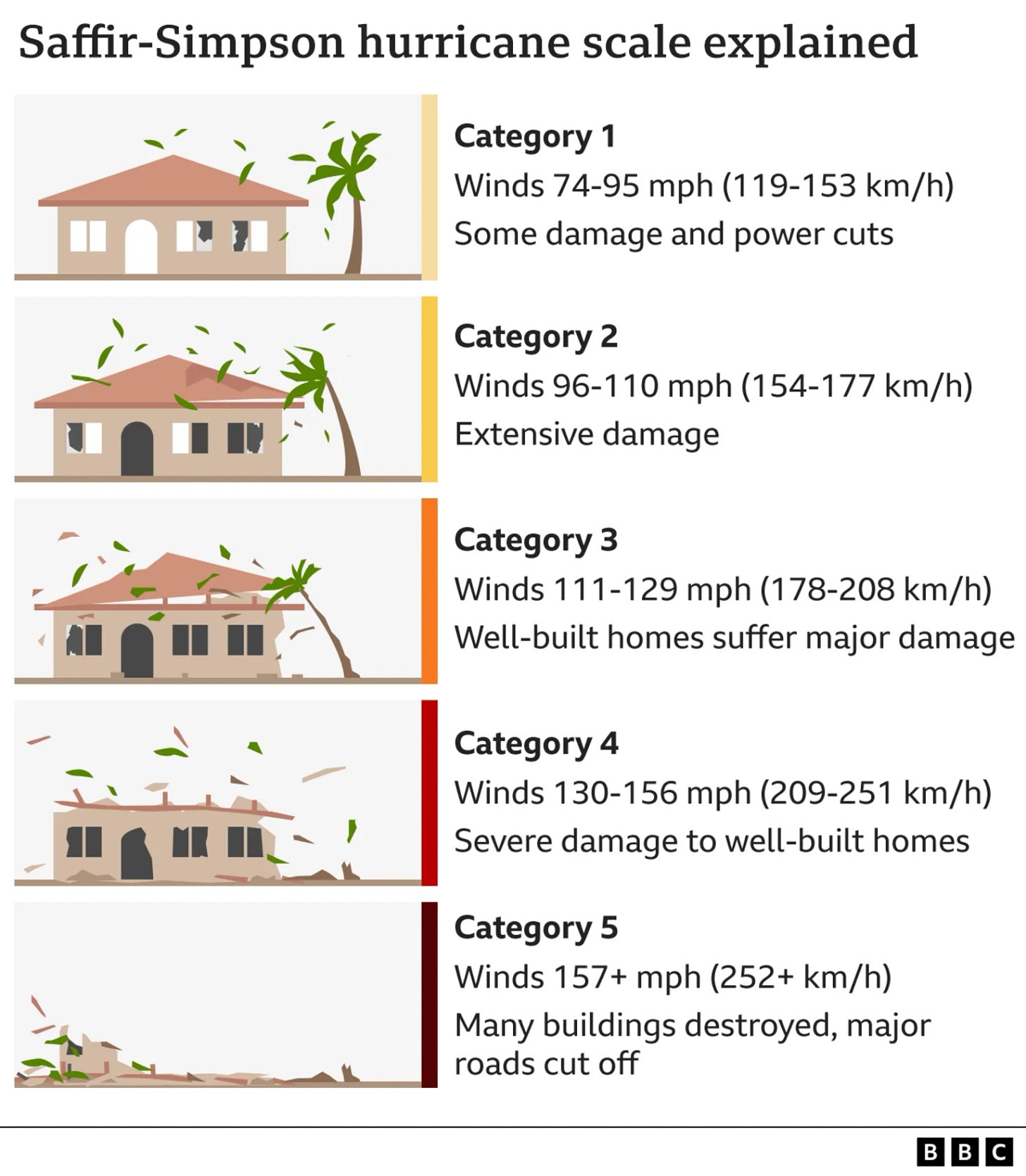
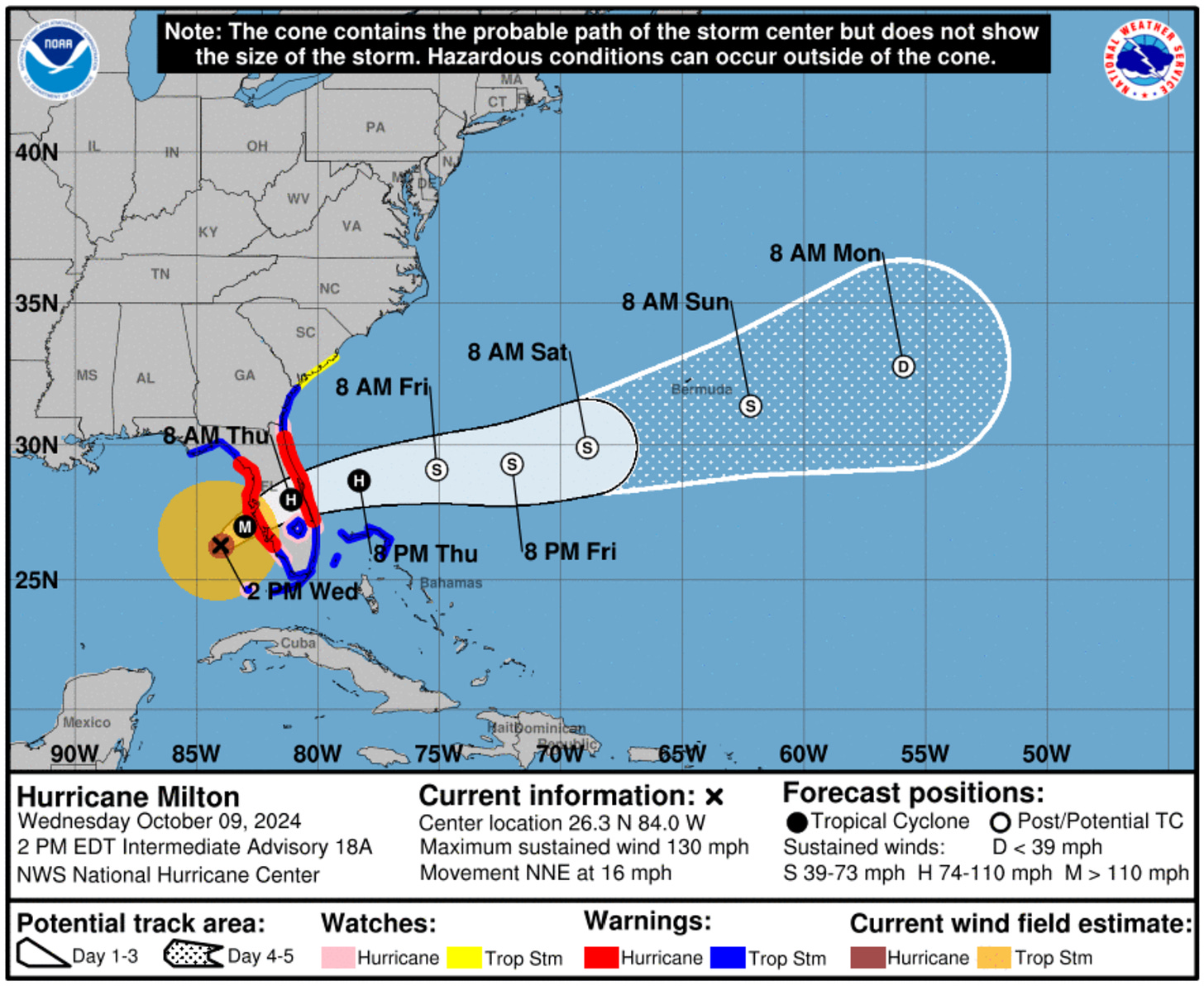

In the eye of another's storm, calm is contagious.
Your words, 'When our storm comes—and it will—we’ll have to weather it and then pick up the pieces once it’s all said and done,' are so poignant. It's a reminder that resilience isn't about avoiding hardship, but about facing it with courage and grace. Thank you for sharing your perspective.